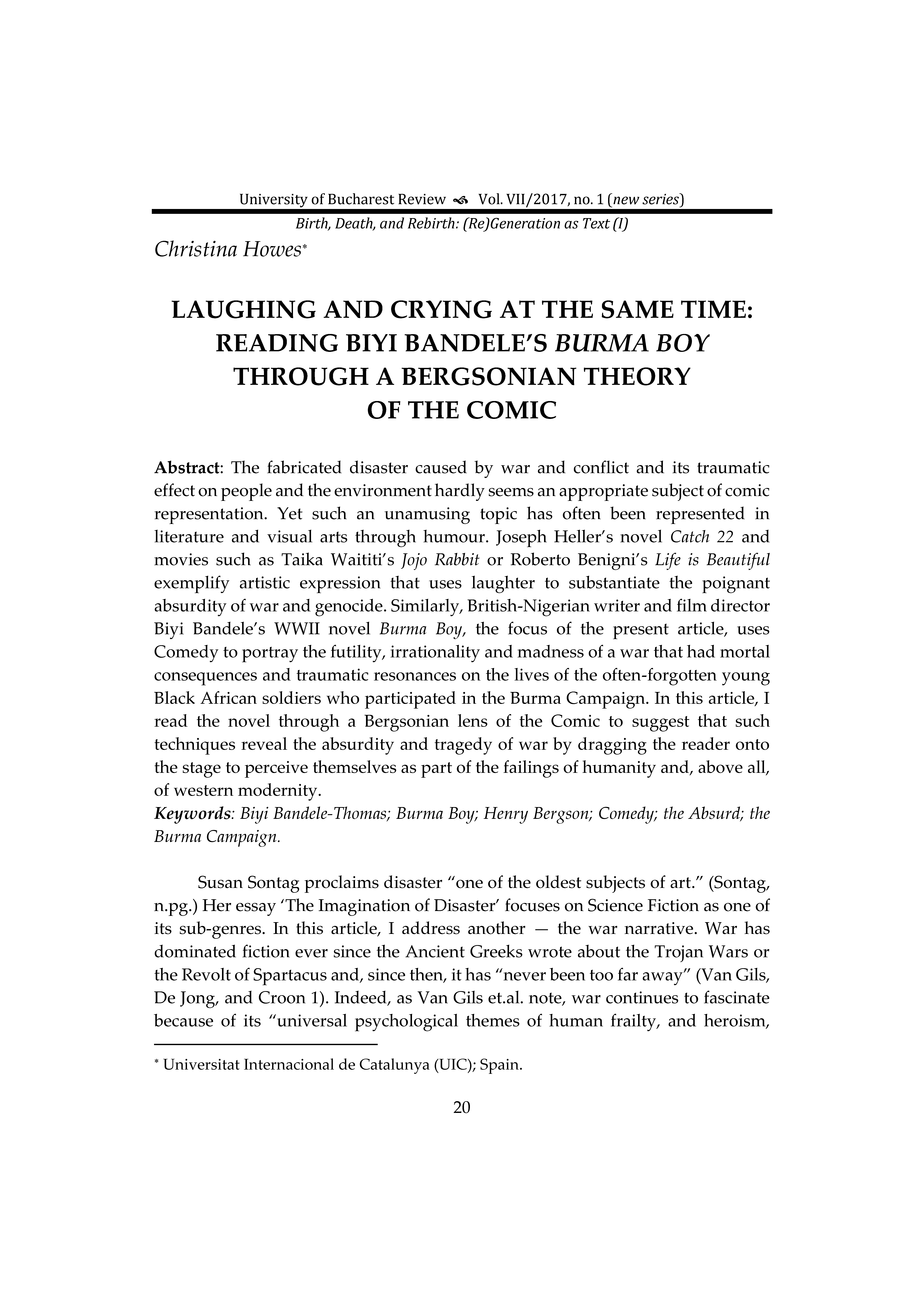LAUGHING AND CRYING AT THE SAME TIME: READING BIYI BANDELE’S BURMA BOY THROUGH A BERGSONIAN THEORY OF THE COMIC
DOI:
https://doi.org/10.31178/UBR.12.2.2Keywords:
Biyi Bandele-Thomas, Burma Boy, Henry Bergson, Comedy, the Absurd, the Burma CampaignAbstract
The fabricated disaster caused by war and conflict and its traumatic effect on people and the environment hardly seems an appropriate subject of comic representation. Yet such an unamusing topic has often been represented in literature and visual arts through humour. Joseph Heller’s novel Catch 22 and movies such as Taika Waititi’s Jojo Rabbit or Roberto Benigni’s Life is Beautiful exemplify artistic expression that uses laughter to substantiate the poignant absurdity of war and genocide. Similarly, British-Nigerian writer and film director Biyi Bandele’s WWII novel Burma Boy, the focus of the present article, uses Comedy to portray the futility, irrationality and madness of a war that had mortal consequences and traumatic resonances on the lives of the often-forgotten young Black African soldiers who participated in the Burma Campaign. In this article, I read the novel through a Bergsonian lens of the Comic to suggest that such techniques reveal the absurdity and tragedy of war by dragging the reader onto the stage to perceive themselves as part of the failings of humanity and, above all, of western modernity.





